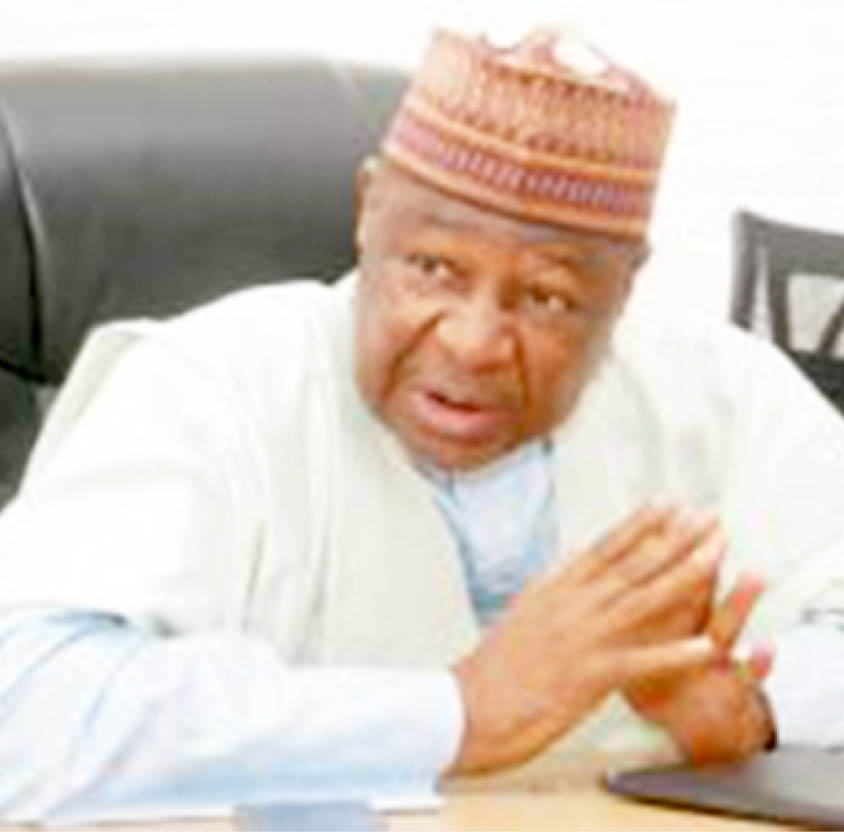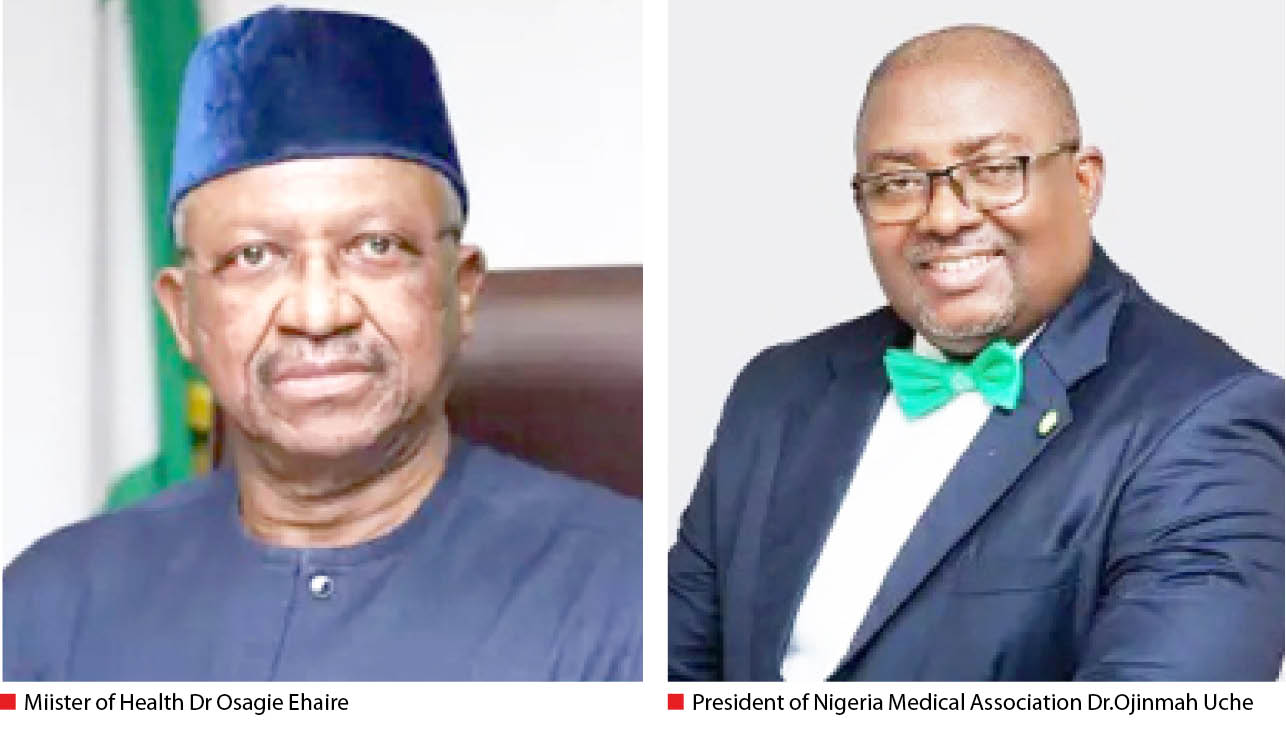Graduates of medical and other allied health courses are increasingly finding it difficult to secure placement for housemanship (as house officers), internship, as well as residency training programmes in hospitals, an investigation by Daily Trust revealed.
The graduates include those who read Medicine, Pharmacy, Medical Laboratory Science, Nursing, Physiotherapy and Radiography, to mention a few.
- Day Fulani renewed 160-year friendship with Lagos royal family
- Insecurity: Army unveils new operation in Niger
But some health facilities said the graduates were the architects of their problems because they always want to be posted to certain places.
Findings revealed that public hospitals and hospital management boards have few spaces and slots yearly, compared to the number of applicants.
Therefore, many of the applicants have to rely on connections to highly placed or influential persons or resort to bribing officials to secure placement.
The challenges in securing placement often leave many of them frustrated and struggling for years, thus missing other employment and academic opportunities.
While the now central placement of doctors for housemanship by the Medical and Dental Council of Nigeria (MDCN) has helped, when compared to previous years, doctors are still having difficulties securing placement for housemanship because of limited spaces and waiting time for posting, among other issues.
Pharmacists and other young allied medical and health practitioners have also called for central placement by their regulatory councils to alleviate their suffering.
I applied to 9 hospitals but yet to be considered – Pharmacist
In Kano, graduates of medical and allied courses have joined their colleagues in other states to lament the difficulties currently encountered in securing spaces for housemanship, residency and internship programmes.
There are four hospitals accredited to take interns in Kano: Aminu Kano Teaching Hospital (AKTH), National Orthopaedic Hospital, Dala; Murtala Muhammad Specialist Hospital and Muhammed Wase (Nasarawa) Specialist Hospital.
Halima Jacob, a pharmacist who has applied to two federal hospitals and participated in the examination conducted by the AKTH, has not gotten any word from any of the facilities.
“I have applied to 9 hospitals across Nigeria, including the AKTH and Dala in Kano. I have not applied to Murtala and Nasarawa because theirs is done through the Hospital Management Board and the strike action prevented me from getting the departmental signature needed on the form, so I have not submitted it.
“I have gone to Abuja, Kaduna and Keffi in Nasarawa State, and in all, I have discovered that only those with connection – either by knowing someone in high places or those ready to grease the hands of the officials – have been considered.
“However, in Kaduna, Barau Dikko Specialist Hospital is willing to take interns but they told us that they don’t pay. So, you see, those that won’t pay you are eager to take you in, but those that will give you some little allowances have become the hot cake,” she said.
She appealed to the federal government to “consider adopting the National Youth Service Corps (NYSC) approach, where they will ask our schools to send our names to the Pharmacy Council of Nigeria (PCN), which will then post us to these hospitals. With that, I believe this problem can be addressed.”

Also speaking with our reporter, a student of Physiotherapy who asked not to be named said she applied in three different places but had to give bribe before being enrolled.
“This is my second month. You know how the system is – even right from school admission one has to give something (buy or give out bribe) before one gets what one wants.
“In my case, I had to dole out N50, 000 before I got enrolled in the place of my choice. They will tell you it’s closed or full. Honestly, everywhere you go to, people are booking ahead of time while the people there also have their own people they want to bring. It is challenging,” she said.
Efforts to contact the authorities in Murtala Muhammad and Abdullahi Wase Specialist hospitals, the Kano branch of the Nigeria Medical Association (NMA), were not successful as calls put across to the Chief Medical Directors were not attended to.
Also, the public relations officer of the Kano Hospital Management Board promised to enquire about the issue and get back to our correspondent. He has not done so at the time of filing this report.
In Rivers State, a medical doctor, Nonso Okiti, said people who were lucky to get placement were those who have people in top positions and others who could bribe their way through.
He said, “I had difficulty securing a place for housemanship, so I had to use one contact or another to get placement. To succeed, you must have someone at the top management level. Some people go as far as bribing their way through. The placement is carried out by the MDCN and it is very competitive. It is a matter of who knows who. That is the situation. I have to work very hard to get placement.”
Another allied medical science student said she had tried severally to get placement but could not succeed.
The student, who pleaded anonymity said, “It is not an easy task to get placement for housemanship and internship. In Nigeria everything ends up with who knows who or if you have the resources to bribe your way through. The people that have connection at the top scale through easily while others have to bribe their way to be considered; I don’t know anybody and I have no money to bribe anybody, so I have to rely on God to succeed,” she said.
At the University of Port Harcourt Teaching Hospital (UPTH), our correspondent could not get the number of persons on internship.
The hospital’s public relation officer, Meni said it was the responsibility of the MDCN to place doctors on housemanship.
Bauchi
The chairman of the Medical Advisory Committee (CMAC), Abubakar Tafawa Balewa Teaching Hospital (ATBU-TH), Bauchi, Dr Haruna Usman Liman, said that as a training programme, there is a limit to the number of people they can admit at a particular time.
“Sometimes when this quota is filled, any other application should have to wait until the current interns have served the one year mandatory period.
“Once that has expired, vacancy is created for additional people to be taken during the course, at which an interview is scheduled and advertised accordingly and people are invited to present their credentials for the purpose of interview and screening.”
Commenting on the possibility of increasing the number of applicants in the ATBU-TH, Dr Liman said there were certain criteria for housemanship predetermined by the MDCN, which are pre-satisfied by the training institution.
“We had re-accreditation visit by the panel of the MDCN recently, and as part of requirements, they looked at the training personnel. They went round to assess infrastructure and available facilities. They also assessed the number of consultants per department.
“It doesn’t matter if you have 50 departments and 100 consultants each, so long as you have six consultants in one department, the least number, which is six, is what will be used as a yardstick by the MDCN to give you the quota house officers you can train,” he said.
‘Some interns abuse processes’
Despites effort to give opportunities for the graduates to succeed, Dr Liman said some interns abuse the privilege with a view to securing employment in Bauchi State.
He said, “There are candidates presented to us for internship but they are not able to scale through the eligibility screening process. Some of them do not have updated licences; in fact, some don’t even have licences at all. Some have gone through training in centres that are not accredited for the purpose of the training.
“There are others who would have done the internship in other centres and come over to do a repeat of one year here. We screen such people out because internship is supposed to be done once. The programme is not to be abused as a privilege for employment. Once someone does the internship, it is expected that he should exit and go into the labour market to seek employment.”
Responding on the difficulties in securing internship in the ATBU-TH, Dr Liman
“We want to increase the number of consultants, but due to issues of funding and other determinants, it is usually difficult because of these gaps or deficit in personnel. That has been the major factor limiting the number of trainers in the institution. And that is what the MDCN uses as a yardstick to determine what quota (number of house officers) can be allowed for training in the institution,” he said.
Dr Liman said adequate facilities for accommodation and the number of bed capacity was also a factor considered by the council.
He further said hospitals would work extra hard to provide this, and if the regulatory board comes and sees that all these things are put in place, they can increase the number of slots for training.
He explained that the same applies for nursing, radiotherapy, physiotherapy, dental technologist interns and any other specialty training within the teaching hospital that requires internship training.
Interns want to stay in comfort zones
A private physician in Kano, Dr Khalifa Usman Abdullahi, associated the difficulty in securing internship placement to individual specifications and recruitment time by hospitals.
He said, “Honestly, what is happening is that our people don’t want to go outside their comfort zones or travel to other states. So, with the limited space in their states they find it difficult.
“Most people have specifications as to which hospital they want to go to. Some will say they must be at a federal hospital or medical centre, while some prefer state-owned hospitals. This creates additional challenges also.
“With the hospitals having their own time for recruitment and limited number of people they want to engage, sometimes students remain redundant waiting, while others even exhaust the year without getting admitted to any facility,” he said.
Abdullahi added that with the existing challenges, students find it difficult in some states to be enrolled due to indigene issue.
“Tribalism is another problem. Some states are wary of enrolling people from other states because they have their own students that will eventually apply.
“So, if you are not an indigene of that state it will be extremely difficult for you to be absorbed. I reason with them because there are limited spaces and they can’t take you and leave their own,” he added.
In Kaduna State, Dr Ibrahim Musa Ibrahim, said the challenge of getting spaces for housemanship for young doctors was much and mostly affects states with high population like Kano and others, as most times, doctors have to leave for neighbouring states to secure placement.
He said some of his colleagues spent between six months and one year waiting to secure a space.
“The issue becomes more difficult now that posting for housemanship is made directly from the MDCN. This is because accredited hospitals are few. Doctors wait for months to get posting. Although the hospitals need doctors, it’s difficult to secure a space,” he said.
He said he wanted to do his housemanship in Kano but had to leave because he couldn’t secure a place in the state.
On whether doctors bribe officials to get place for their housemanship, he said, “Honestly, I am not sure of that, all I know is that you need to know somebody to help you secure a place in a hospital, if not it will be difficult for you to get a place,” he said.
Doctor Ibrahim also said many young doctors were not aware of how to contact the Nigerian Medical Association (NMA) officials in their states to intervene on the challenges some of them are facing before getting a place for housemanship.
The NMA secretary in the state, Dr Hassan Bala Saliu, said the association had been engaging the MDCN on the need to frequently open their portal for people to apply for housemanship.
He said the NMA had not officially received any complaint on the challenges of securing places for housemanship.
He explained that some hospitals had limited spaces, approved budgets, among other challenges.
He, however, said posting for housemanship had been centralised to tackle the challenge of space because it is only the MDCN that could post doctors.
“It is only the MDCN that posts, and they can take you to any state; but because some of the doctors may not like where they are posted, they will not go. Yet some of them will complain of lack of place for housemanship.
“Some people will prefer to wait until they get a place of their choice,” he said.
He also said that most times, the portals are open, but due to lack of publicity, some of the young doctors may not know so as to apply.
The commissioner for health in the state, Dr Amina Mohammed Baloni, could not be reached on phone. At the time of filing this report, she was also yet to reply a text message sent to her on the issue.
MDCN seeks more hospitals in states
The chairman of the Governing Board of the MDCN, Professor Abba Waziri Hassan, during the recent induction ceremony of graduates of Medicine and Dentistry from foreign institutions, said the centralised internship administration by the council had come to stay, and urged the Federal Ministry of Health to continue to do everything necessary for it to be sustained.
He said, “I also wish to use this opportunity to again appeal to all the state governments to consider the upgrade of at least three hospitals in their respective states to the standard suitable for housemanship training. This will create adequate spaces for the programme every year.
“I also implore all housemanship training centers not to reject house officers who have chosen their centres for the one year programme.”
Professor Ahmed Tijjani Mora, the chairman of the Governing Council of the Pharmacists Council of Nigeria (PCN), said they were working towards addressing the difficulties young pharmacists face in securing places for internship after graduation.
He said this was one of the resolutions from the council’s regular meeting in Abuja.
Professor Mora said the average number of fresh Pharmacy graduates annually was between 1,500 and 1,800 while the accredited internship training centres were only 380, with most of the centres at general hospitals, teaching hospitals and manufacturing facilities and community pharmacies.
He said the council was concerned about the frustration and restlessness of young pharmacists over the issue and had set up an ad hoc committee and other plans to ensure that all fresh Pharmacy graduates were attached to accredited internship training centres in the country.
He said the council would also ensure a harmonised system of internship placement so that by the time the registrar is administering the Oath of Pharmacy on fresh graduates, they would know where to do their internship.
By Ojoma Akor (Abuja), Salim Umar Ibrahim (Kano), Mohammed Ibrahim Yaba (Kaduna), Victor Edozie (Port Harcourt) & Hassan Ibrahim (Bauchi)

 Join Daily Trust WhatsApp Community For Quick Access To News and Happenings Around You.
Join Daily Trust WhatsApp Community For Quick Access To News and Happenings Around You.


